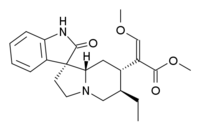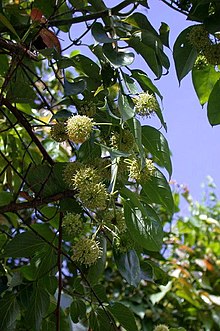dopamimetic
Bluelighter
- Joined
- Mar 21, 2013
- Messages
- 2,070

Finally we have a candidate for a Natural Hole. Started an own thread for it because it's pretty unknown, in an earlier one about herbal dissos (which I can't find anymore, was January or so) the consent was there were none known yet.
"Rhynchophylline is an alkaloid found in certain Uncaria species (Rubiaceae), notably Uncaria rhynchophylla[1] and Uncaria tomentosa.[2] It also occurs in the leaves of Mitragyna speciosa (kratom),[3] a tree native to Thailand. Chemically, it is related to the alkaloid mitragynine.
Rhynchophylline is a non-competitive NMDA antagonist (IC50 = 43.2 μM) and a calcium channel blocker.[4][5]
Uncaria species have had a variety of uses in traditional herbal medicine, such as for lightheadedness, convulsions, numbness, and hypertension.[6] These uses have been associated with the presence of rhynchophylline and have encouraged its investigation as a drug candidate for several cardiovascular and central nervous system diseases; however, few clinically relevant studies have been conducted.[6] (wikipedia)"
At least it isn't inactive:
Rhynchophylline Protects Cultured Rat Neurons against Methamphetamine Cytotoxicity
Rhynchophylline (Rhy) is an active component isolated from species of the genus <i>Uncaria</i> which has been used for the treatment of ailments to the central nervous system in traditional Chinese medicine. Besides acting as a calcium channel blocker, Rhy was also reported to be able to protect...
It is also contained in kratom but didn't find numbers, so hope it's only trace amounts there and Uncaria might be more potent. It doesn't need to provide a hole at all, I'd be very happy with effects similar to a low dosage of e.g. ketamine. Promising? Any more info?

Last edited:
